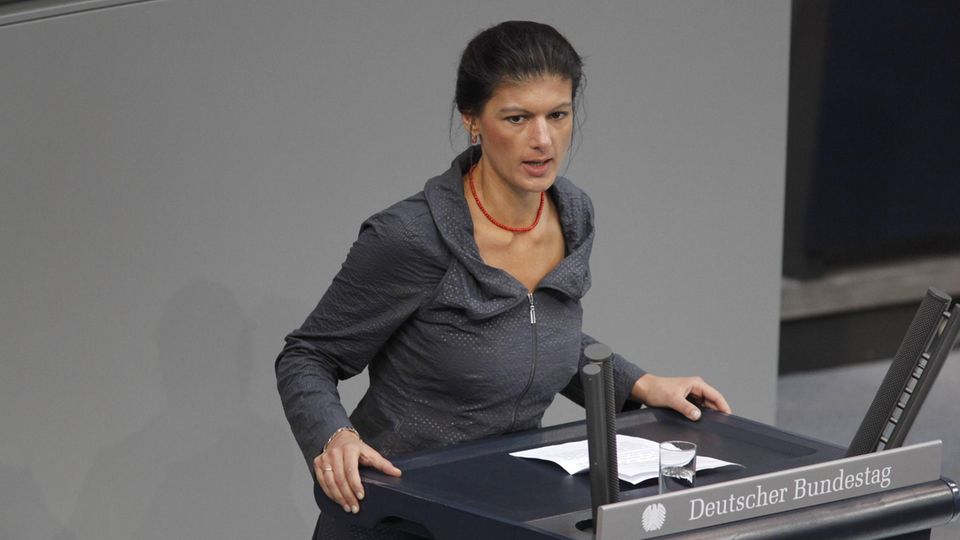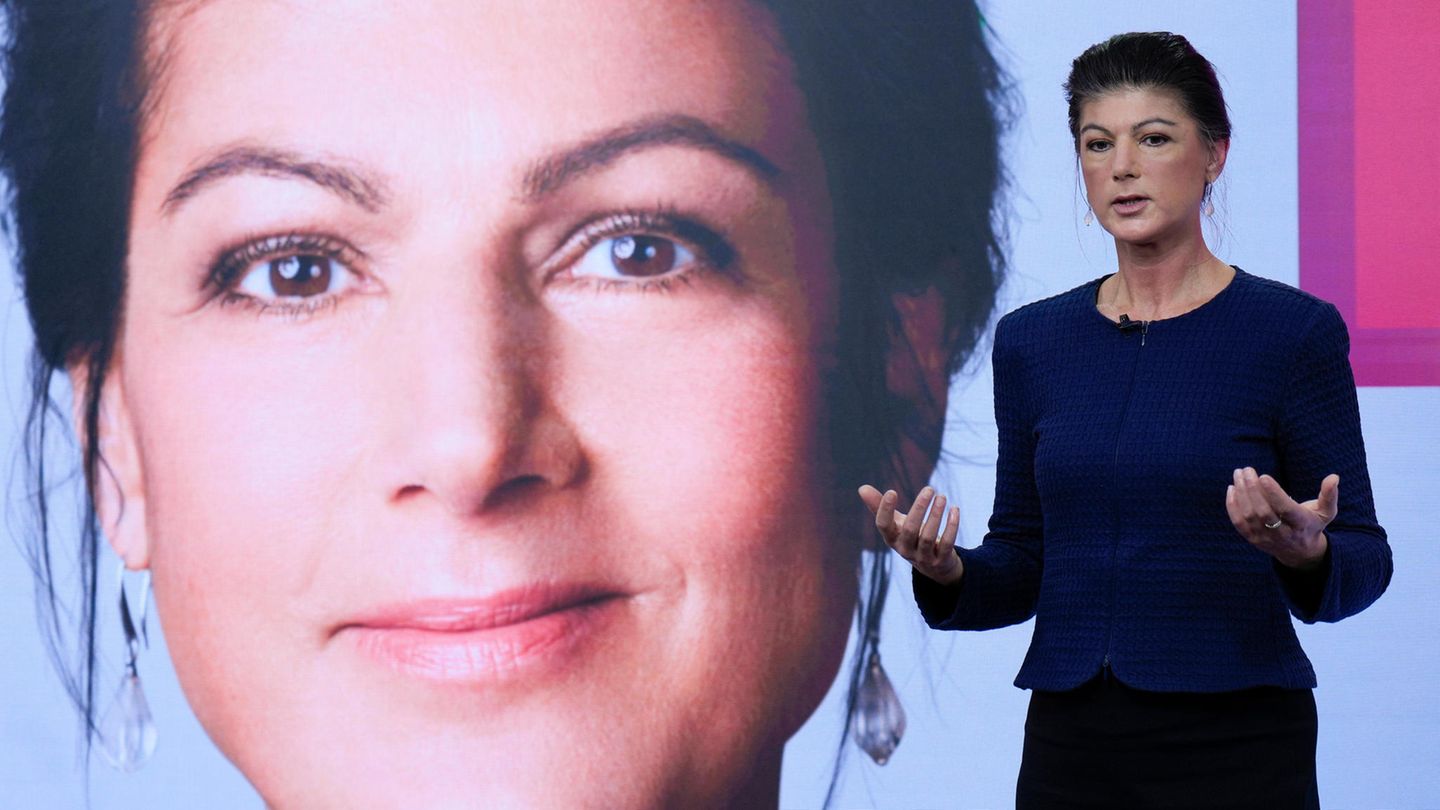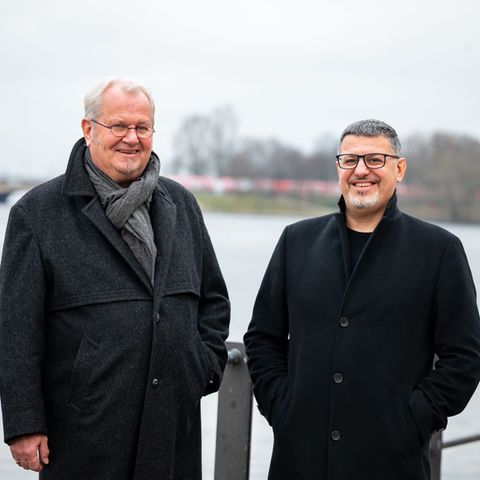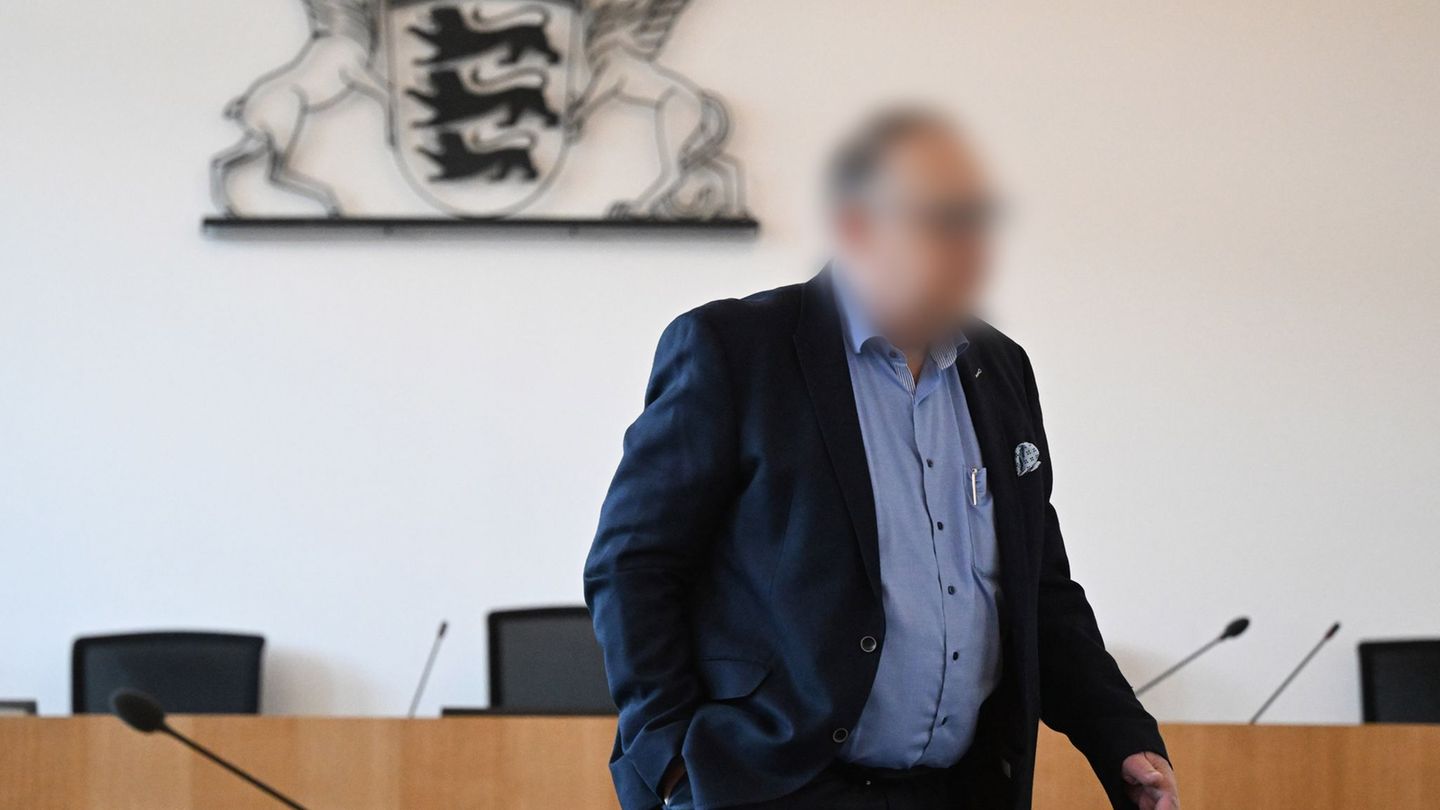BSW federal party conference
Is Sahra Wagenknecht’s star now burning out?
Copy the current link
Sahra Wagenknecht got off to a brilliant start with her new party. But now their alliance is in danger of failing due to its entry into the Bundestag. That would be a turning point.
Anyone who wants to know how quickly political moods can change can get illustrative material from Alliance Sahra Wagenknecht. A few months ago, entry into the Bundestag seemed a sure thing for the ex-left group. The BSW entered the European Parliament with 6.2 percent and performed so well in three state elections that it now even governs in Thuringia and Brandenburg. In federal surveys it was a stable seven to nine percent.
Two members are being expelled
But when around 700 of the 1,000 BSW members come together this Sunday at the Bonn “World Conference Center” for their election party conference, there is still no reason for euphoria. According to the latest ZDF political barometer, the Wagenknecht party only has four percent.
That’s not enough to get into the Bundestag, where the BSW has been languishing with the status of “group” since it split off from the Left. And there are no three direct mandates for the exception clause in sight.
In some regional associations things have been crunching for a long time. In Thuringia, state leader Katja Wolf argued with Wagenknecht over the correct wording in the coalition agreement. In Hamburg there are disagreements with the federal executive board. Exclusion proceedings are underway against two Hamburg members after they founded a second regional association.
And another member, BSW co-founder Torsten Teichert, a former employee of Hamburg’s ex-mayor Klaus von Dohnanyi, has just accused Wagenknecht of “leader culture” and “secret sympathy for AfD thinking” in an internal letter, according to information from “Spiegel”. .
Sahra Wagenknecht is “accused of authoritarian structures”
The BSW’s difficult situation is at least partly of its own making. The tight leadership, the isolation of Wagenknecht and her inner circle of confidants, combined with strict control, have been causing discontent for months. New members are still only hand-picked and accepted after examination by the federal executive board, ostensibly to avoid infiltration by troublemakers. Some of the early supporters, who had been hoping to be accepted for months, have since withdrawn their application out of frustration at the long wait.
The MEP Friedrich Pürner, a former medical officer who lost his job because of his criticism of the Corona measures during the pandemic, openly threatened to leave in an interview with the “Berliner Zeitung”. He spoke of “authoritarian structures”: “In my opinion, the party’s leadership is primarily made up of former leftists who are well known to each other.”
The biggest problem is not self-inflicted
But the biggest problem for the BSW is not its own fault. When Wagenknecht founded the party, she was able to build on the dissatisfaction of many people with the traffic light government. But the coalition is now history; The election campaign is determined by the major parties, CDU/CSU, AfD, Greens and SPD. The little ones are in danger of going under. Not just the BSW.
In addition, the BSW was unable to evade government responsibility in Brandenburg and Thuringia. This automatically weakens the radical populist course in the federal government, especially in competition with the AfD.
At least Sahra Wagenknecht wanted to prevent the alliance with the CDU in Thuringia, but was unable to prevail. She therefore faces a double challenge on Sunday afternoon in Bonn: In her speech, she not only has to credibly sell the fundamental opposition image – but also give the impression that her alliance is united and that the poor poll numbers are just a short dip in form.

The federal election program should also be decided at the party conference. In many respects it is a mixture of left-wing social and peace policy and right-wing conservative security and economic policy. What is called for is the withdrawal of the heating law and the ban on combustion engines, a tax exemption for statutory pensions up to 2,000 euros and a tax on the rich for assets of 25 million euros or more.
The statutory minimum wage is to be increased to 15 euros and citizen’s benefit is to be replaced by “performance-based unemployment insurance”. Hospital privatization should be stopped and citizens’ insurance should be introduced for everyone. The call for a “national day of clearing out” seems somewhat strange, during which authorities should examine twice a year which guidelines and requirements could be abolished.
The election program – a left-right mix
That’s one side. The other: In terms of domestic policy, the BSW relies on toughness and isolation. According to the election program, refugees who have committed criminal offenses should lose their right to an asylum procedure and the latter should generally be relocated to safe third countries outside the EU.
Otherwise, the BSW of course declares itself to be the “only consistent peace party” and calls for a ban on arms exports. It also rejects the reintroduction of compulsory military service, the deployment of German soldiers abroad and the stationing of US medium-sized missiles on German soil. Financial support to Ukraine should be stopped immediately and a “ceasefire without preconditions” brought about. Wagenknecht himself has never been to Ukraine.
The Ukraine demands have been one of the BSW’s biggest attractions in recent months. But even they have lost their appeal since the differences between the current Chancellor Olaf Scholz and his rival Friedrich Merz (CDU) in their respective Ukraine strategies became even clearer after the traffic light broke. When it comes to migration, many voters who sympathize with the demands of the BSW are likely to ultimately choose the AfD. In the surveys, this is now more than 20 percent.
That would mean failure in the election
For Sahra Wagenknecht, entering the Bundestag was always the biggest goal for her alliance. If this does not succeed, this does not mean the end of the party. But then the disagreements within and the courage to resist Berlin’s guidelines would grow.
Wagenknecht would then have to put even more effort into cohesion – a quality that was not particularly good for her when she was leader of the left-wing faction. Failure in the federal election could therefore mean the beginning of the end for their party project.
An earlier version of this article stated that Hamburg’s designated top candidate, Zaklin Nastić, had resigned. She took this decision back on Saturday and was elected as the top candidate.
Source: Stern
I have been working in the news industry for over 6 years, first as a reporter and now as an editor. I have covered politics extensively, and my work has appeared in major newspapers and online news outlets around the world. In addition to my writing, I also contribute regularly to 24 Hours World.





